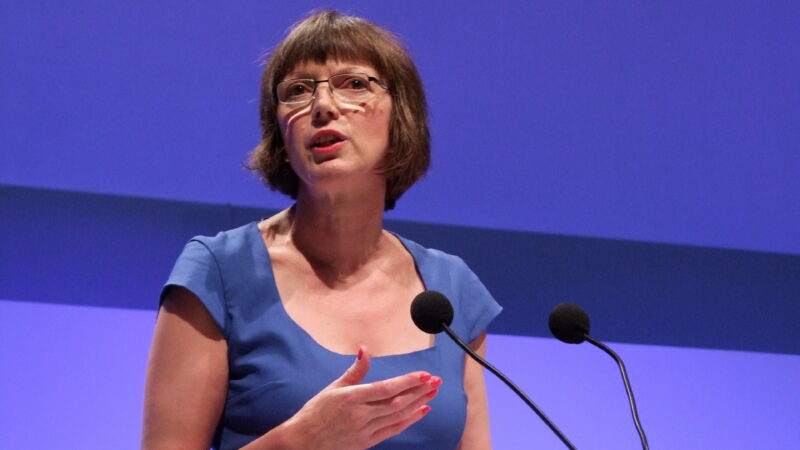
Back in March, unions came together to demand safety, justice and equality and to condemn male violence. In the wake of Sabina Nessa’s murder – a young teacher, loved by her pupils, murdered as she walked to meet friends – we stand with the families of Sabina, Sarah Everard, Nicole Smallman and Bibaa Henry. And the countless others who have lost a loved one to violence.
Once again, we must ask: how many more times does a woman have to lose her life before we confront male violence? Some say this type of crime is rare. But that is simply not true. Male violence against women and girls is everywhere. It is every day. In our homes, in our workplaces, and in public and digital spaces.
In the UK, at least 106 women have been killed by men (or where a man is the principal suspect) this year alone. Male violence is so entrenched that many women’s deaths at the hands of a male partner don’t even make the news. Three women a week are killed as a result of domestic homicide, and on average the police receive 100 calls regarding domestic abuse every hour.
In the UK, 86% of young women and 71% of all women have been sexually harassed in public. One in two women are sexually harassed at work, and over a third of girls in mixed schools have been sexually harassed at school.
Violence against women and girls happens because of the inequality and power imbalance between men and women. Women’s experience of violence is exacerbated by factors such as their ethnicity, sexual orientation, gender identity, age, religion, immigration status or disability.
Until we genuinely confront male violence and the social structures that enable it, the safety and equality of women will always be under threat. As trade unions, we have a role to play in stopping male violence. At the TUC, we have shone a light on sexual harassment and assault of women and LGBT+ people at work.
We campaigned and won the recently announced duty on employers to prevent sexual harassment in the workplace. And we have long campaigned for and developed and negotiated workplace policies to support survivors. But there is still so much to do.
The government must act now to dismantle institutional sexism, racism and other forms of discrimination. In its Violence Against Women and Girls strategy, the government said: “We must honour these women and girls by doing more to prevent violence, support victims and pursue perpetrators”.
Ministers must urgently bring in the promised duty on employers to prevent sexual harassment – and fund enforcement. They must address the exclusion of migrant women from the Domestic Abuse Act and ensure safe reporting routes for women with insecure migration status. They should make sure all relevant public sector staff receive enhanced training on preventing and responding to violence against women.
And they must provide long-term funding for vital, life-saving services for survivors of domestic abuse and sexual violence, including specialised services for BME, LBT+ and disabled women.
All of this must be part of a genuine cross government strategy to confront and tackle male violence – and sit alongside a cross-departmental action plan to address the structural inequalities experienced by women, Black communities, LGBT+ and disabled people in work, health, education, housing and justice.
We remember Sabina Nessa and all those who have lost their lives to male violence. We stand with survivors. We demand safety. We demand justice. We demand equality.




More from LabourList
‘Factionalism at the top is weakening Labour – and handing a gift to Reform’
‘Europe must stand strong on its own as US security guarantees grow conditional’
‘Tackling poverty should be the legacy of Keir Starmer’s government’